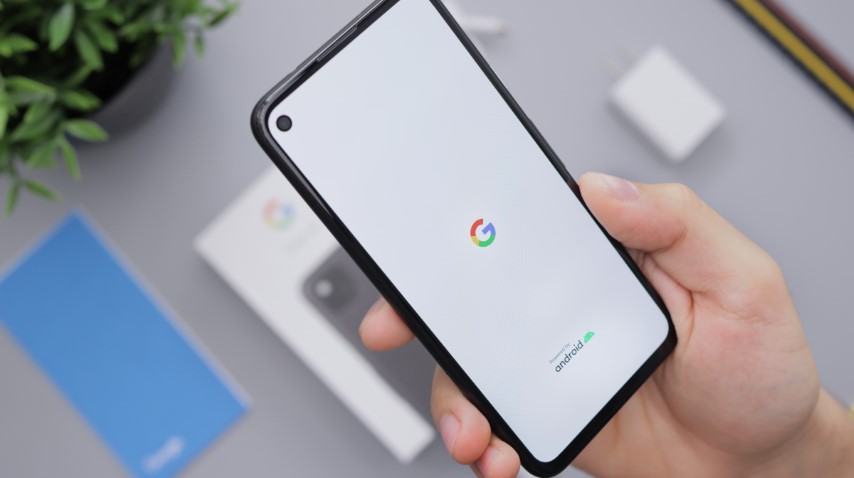Wow, after the last few weeks which have been pretty quiet in the digital marketing sphere, this one can most definitely be described as pretty wild! Google has been in the spotlight this week – there’s been SEO news, claims that it’s taking business and traffic away from sites and a fiery response from the search engine!
Also, social media has been a bit busy this week. New announcements from TikTok and YouTube have been important, but also, Trump is set to launch his own platform.
Still haven’t seen last week’s stories? We talked about all things Google v. Microsoft as well as moves to counter disinformation and user safety across social media.
This week at Ambire, we sat down with Ryan Primrose from Flowers for Everyone to chat all things digital marketing, and had an in-depth look at some Aussie brands killing the game for our Ecommerce Diaries.
Read on to find out more, and have a great week!
A busy week for the search engine giant, Google.
Starting off with the search engine giant itself – buckle in, dear readers, as there has been a lot going on.
Firstly, according to a SimilarWeb study, between January and December of 2020, nearly 65% of Google searches resulted in no clicks to another website.
This is almost two thirds of every single Google search, then, resulting in no traffic for websites or ads.
That seems astounding. The researchers suggest that this could rise as we get back out and about and use our mobiles, rather than desktops, for searches.
However, in response, Google has come out and disputed this data by providing context. This could be because people are searching for a quick fact like the weather, which Google has a licence to display, a business or phone number or comparing flights or other transport options with Google’s own platforms, or going straight from the SERPs to an app.
They say that local results in Search still drive business even though users do not have to click on the website, indeed, many of these businesses might not have a website at all.
The search engine also shared some data in order to protest against the claim that it’s taking business away from users. They say local results in Search drive more than 4 billion connections for businesses every month – including phone calls, food orders, reservations and directions.
Through this, they connect 120 million businesses that do not have a website with customers.
They also argued that traffic to the web has only increased since Google Search was created, although this seems a little hard to dispute, because, obviously traffic to the web has increased as populations and web-users increase.
SEO
Google’s John Mueller has re-confirmed that the search engine does not use bounce rate for SEO. In fact, he literally said in a Reddit post that “Google doesn’t use that for SEO, so if you’re focused on SEO, you can ignore that.”
This came in response to a question another Reddit user had asked on the platform.
GOOGLE MY BUSINESS
Wix and Google have expanded their partnership to integrate Google My Business directly into the platform. This will allow businesses to access GMB data, interactions and manage their profile all from the platform.
Wix already takes care of a site’s SEO and technical side, so this move further cements its importance in local search.
MICROSOFT ADS
Microsoft Ads will move towards increasing automation by rolling out auto-applied ad suggestions.
Advertisers will be able to opt-out of the feature which will help users identify those ad groups that have the highest potential for performance, and then go ahead and automatically generate new ads within these groups.
It’s pretty nifty, and will help reduce the most time-consuming task of all – copywriting….
SOCIAL MEDIA
Not sure if he deserves a mention, after all, ever heard of the saying – last year’s news? No? Well, me neither.
However, former US President Donald Trump is supposedly planning his return to the world of social media. If you remember, both Twitter and Facebook banned the former President for inciting violence.
Personally, I think the ban should’ve occurred earlier simply due to his appalling grammar. Nevertheless, an advisor to Trump said that he’d be back online, but this time he’d do it by launching his own platform which will apparently be … big.
Only time will tell whether he pulls this one off.
YOUTUBE
This one actually merited a longer blog post from us. In a nutshell, YouTube is introducing its Shorts platform into the US market after a successful testing phase in India.
The video streaming service is attempting to compete with the highly successful format of TikTok videos and Instagram reels, and will allow creators to (eventually) sample content from all across YouTube, including music, to use for their videos.
This will mean artists are credited for their work, and may gain more exposure. In terms of music, YouTube is in the process of doing deals with labels like Universal.
TIKTOK
And, speaking of TikTok, the platform announced last week that there will no longer be an option for users to opt out of ad personalisation.
Users would have received a notification upon opening the app that explained that the ads people begin to see from 15 April will be based on what they do and watch on the platform. Previously, ads were not personalised.
They’ve also added an entire section to their privacy settings to explain to users why this benefits their experience, i.e. they see ads for products they might actually want to buy.
THE COOKIE APOCALYPSE
In good news, according to research published by Digiday, many publishers are looking to return to the old days of contextual targeting once cookies are pulled from Chrome.
We’ve written extensively about the upcoming changes to cookies on the blog if you want to check that out.
Although contextual targeting is not as sophisticated as third-party tracking, it is going to be a highly sought after alternative in the coming months and years.
So, there you have it! That was a lot to digest, so if you’d like something a little more light-hearted, why not have a read of our recent instalment of the Digital Marketing Chronicles with SEO consultant Brodice Clark.



